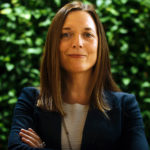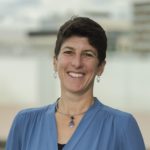
- This event has passed.
2022 Sustainability Change Leadership Development Program
March 8, 2022 @ 11:45 am - 5:00 pm EST
$975Deadline to apply has passed. If you have any questions about this event, contact us at education@aashe.org.
The AASHE Sustainability Change Leadership Development Program is a 6-month, virtual, hands-on, cohort-based collaborative program that trains you in a diverse set of frameworks, tools, and models for leading organizational change that you can apply now and throughout your career. Expert faculty and guest lecturers guide you through the design and implementation of a change management project at your institution that culminates in a final presentation that you share with your colleagues (e.g., develop a sustainability/climate plan for your department or institution, conduct a STARS assessment, develop a new initiative, policy, or program, etc.). One-on-one and collaborative coaching from faculty and your peers provide you with ongoing support and feedback that help you refine your skills and iterate on your project through the course of the program. Join a network of peers, build relationships that will last a lifetime, and hone your skills as a transformational change leader!
Participate in this program to:
- Accelerate your capacity to design and implement effective, sustained change projects

- Design, refine, and implement a specific organizational change project at your institution (e.g., update your climate action plan; develop a sustainable purchasing policy; redesign your sustainability governance structure; add or expand on your office’s diversity, equity, and inclusion goals; launch a new initiative, etc.)
- Hone skills to engage diverse campus stakeholders in each stage of the change process
- Build a practical toolkit of frameworks and techniques you can use to align vision, purpose, and outcomes and inspire action
- Cross pollinate ideas with a cohort of peers from across AASHE’s community
- Establish lasting relationships and expand your network with this highly interactive and fully virtual program
- Receive one-on-one coaching from faculty and peer-to-peer coaching with your colleagues
- Build buy-in for your efforts and invite participation from colleagues in your organization through an optional advisory board and a culminating final presentation
Participants who work on a organizational change project over the course of the program and submit a final presentation, participate in collaborate coaching and submit a final evaluation are eligible for a certificate of completion issued from AASHE.
Go to:
Key Details
Who Attends?
Program Design & Tentative Schedule
How Much Time Will I Spend?
Justify Your Attendance
Faculty, Facilitators, Coaches and Program Assistant
Sponsors
Key Details
Registration Fees*
| Registration Type | Registration Fee |
| AASHE member institutions, non-profits, and government agencies* | $975 |
| Non-member institutions, non-profits and government agencies | $1250 |
| AASHE member businesses | $1950 |
| Non-member businesses | $2500 |
* To check if your organization is a current AASHE member, please search the AASHE Membership Directory.
Discounts are available for group registration. A limited number of scholarships are available to individuals who need financial assistance to participate. Please apply two weeks before the registration deadline (i.e., 2/22/2022) to be considered for a scholarship for this workshop.
Application Process
- A short application is required
- Applications will be reviewed on a rolling basis.
- The program is intended to be a small cohort size. If the event fills-up, we may close the application process early.
- The deadline for submitting the application is February
2528, 2022. - You will be notified of your application status by no later than 1-2 weeks after you submit your application. At that time, all approved applicants will be provided with a request for payment.
Registration Process & Policies
As further detailed in our terms & conditions:
- Payment will be accepted in the form of Visa, MasterCard, American Express or Discover cards.
- Payment is required within 10 business days after being accepted to secure your seat.
- Deadline to pay is Monday, March 7, 12:00 p.m. ET.
- No cancelations are allowed.
- No substitutions are allowed.
Who Attends?

This event is intended for change leaders both new and experienced who are charged with playing a facilitative role in their organizations to catalyze change. If you are in a role where you are working relentlessly to engage your community in transformation, and you want to connect with others who are in similar roles, this event is for you. If you are unafraid to listen and share about your experiences and would like to deepen your skills to connect in meaningful ways, and help others to do the same, despite and even using the tools of the virtual environment we are working within, this event is for you.
Program Design & Tentative Schedule
The program will be comprised of the following elements:
Tentative Group Seminar Schedule (all times are listed in ET):
- March 8, 11:45 a.m – 5:00 p.m. – Hands-On Seminar
- March 22, 11:45 a.m – 5:00 p.m. – Hands-On Seminar
- April 5, 3:00 – 4:30 p.m. – Seminar
- May 10, 3:00 – 4:30 p.m. – Seminar
- June 7, 3:00 – 4:30 p.m. – Seminar
- July 12, 3:00 – 4:30 p.m. – Seminar
- August 9, 3:00 – 4:30 p.m. – Seminar
- August 23, 2:00 – 5:00 p.m. – Final Presentations
Additional Elements of the Program Include:
- Monthly Pod Time with a designated group of your colleagues enrolled in the program (scheduled with your pod)
- Professional and Peer-to-Peer Coaching (scheduled to work with your calendar)
- Individual Project Work (or Team Work, if registering as a Team)
- Required Readings
- Optional Elements:
- Create an Advisory Board of colleagues and peers to support your work
- Optional Readings
How Much Time Will I Spend?
The Time Commitment is estimated to be approximately 60-72 hours (minimum)
- Group Seminars, Pod Time, Readings, Final Presentations (33 hours)
- Group Seminar Time (18 hours, total)
- Required Readings (6 hours, approx.)
- Pod Time (6 hours, approx.)
- Final Presentations (3 hours, tentatively)
- Individual Work (Minimum 27 hrs)
- 1:1 Coaching with Lead Faculty (1 hour; Two 30-minute sessions included in program)
- 1:1 or Group Coaching with Assistant Faculty and/or Peers (2 hours)
- Project Work (24 hours; minimum 1 hour/week; Actual time spent will vary)
- Recommended/Optional Activities (Approximately 12 hours)
- Additional Optional Readings (6 hours; approx.)
- Advisory Board of colleagues and peers (6 hours, approx.)
Is AASHE’s 2022 Change Leadership Development Program on Your Boss’s Radar?
Use this resource to help justify your attendance and obtain support by explaining the benefits of attending for both you as an individual and your wider organization/community.
Faculty, Facilitators, Coaches and Program Assistant
Lead Faculty & Facilitator: Aurora Winslade, Director of Sustainability, Stanford University; Faculty, Bard Sustainable MBA
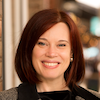
Aurora has nearly twenty years of experience in higher education and private sector sustainability and clean energy work. She is passionate about equipping leaders with the tools to lead successful organizational change and build healthy, just, and resilient communities, and has been leading and facilitating professional development workshops since 2008. She co-created AASHE’s first sustainability officers retreat in 2011 and has led statewide and national workshops in California, Hawaii, New York, and Taiwan. Aurora recently became the Director of Stanford University’s Office of Sustainability and she is a faculty member in Bard College’s Sustainable MBA program, where she has taught Leading Change in Organizations to working professionals since 2017. She previously served as Swarthmore College’s Director of Sustainability from 2015-2021, where she launched and co-led the development of the Roadmap to Zero Carbon, an energy infrastructure plan that will eliminate 98% of Swarthmore’s Scope 1 & 2 greenhouse gases by 2035, launched the award-winning Carbon Charge program, and co-founded and taught in the President’s Sustainability Research Fellowship program. Aurora previously founded new sustainability programs at the University of California Santa Cruz and the University of Hawaii. She also worked for Leidos Engineering as the Market Transformation Manager for Hawaii Energy, the state’s energy efficiency program, and worked with MA’O Organic Farms, a non-profit social enterprise that serves at-risk youth in Hawaii, and the University of Hawaii West O`ahu to launch a B.A. program in Sustainable Community Food Systems. She has a B.A. from the University of California, Santa Cruz and an M.B.A. from Duke University’s Fuqua School of Business.
Coach: Leanne Bilodeau, Associate Director Sustainability Operations, The University of British Columbia, Okanagan Campus – Syilx Okanagan Nation Territory
 Leanne Bilodeau is the Associate Director of Sustainability Operations at the University of British Columbia Okanagan Campus. With over 10 years of experience, Leanne is responsible for operational sustainability planning and policy development, community engagement programs, sustainability and carbon reporting and supporting the sustainability process for capital projects. Leanne is a Registered Professional Planner and Member of the Canadian Institute of Planners. She holds an MA from UBC and is a Certified Sustainability Professional and LEED Green Associate. Her most recent projects include the UBCO Whole Systems Infrastructure Plan, the UBCO Rainwater Management Plan, UBC LEED Guide V4.1 update for UBCO, and the UBCO Climate Action Plan, recently endorsed by UBC’s Board of Governors.
Leanne Bilodeau is the Associate Director of Sustainability Operations at the University of British Columbia Okanagan Campus. With over 10 years of experience, Leanne is responsible for operational sustainability planning and policy development, community engagement programs, sustainability and carbon reporting and supporting the sustainability process for capital projects. Leanne is a Registered Professional Planner and Member of the Canadian Institute of Planners. She holds an MA from UBC and is a Certified Sustainability Professional and LEED Green Associate. Her most recent projects include the UBCO Whole Systems Infrastructure Plan, the UBCO Rainwater Management Plan, UBC LEED Guide V4.1 update for UBCO, and the UBCO Climate Action Plan, recently endorsed by UBC’s Board of Governors.
Prior to her current role, Ms. Prata served as the first named Corporate Sustainability Officer at NewYork-Presbyterian (NYP), of the top ten hospitals in the nation by US News & World Report where she launched an expansive sustainability program that functioned at both the grassroots and executive level and sparked an organizational shift towards sustainable practices and policy. Ms. Prata received a Bachelor of Arts degree at Colgate University, and a Masters of Public Administration degree at Columbia University’s School of International and Public Affairs (SIPA).
Coach: Jillian Buckholz, Sustainability Advisor, Brailsford & Dunlavey
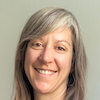 Jillian is currently a Sustainability Advisor at Brailsford & Dunlavey, where she develops climate and sustainability actions plans for higher education institutions. Prior to consulting, Jillian was the Director of Sustainability at California State University, East Bay. As the first sustainability officer for the campus she was solely responsible for integrating the concepts of sustainability into all aspects of campus from academics to engagement, throughout the curriculum, operations and campus plans, and within administrative policies. Before coming to East Bay, Jillian worked at the Association for the Advancement of Sustainability in Higher Education (AASHE) where she connected with subject matter experts to create the Sustainability Tracking, Assessment & Rating System (STARS), a transparent, self-reporting framework for colleges and universities to measure their sustainability performance. Jillian started her career as the first sustainability officer in the California State University System at Chico State, where she led the synthesis of cross-campus sustainability efforts into a cohesive, award-winning program.
Jillian is currently a Sustainability Advisor at Brailsford & Dunlavey, where she develops climate and sustainability actions plans for higher education institutions. Prior to consulting, Jillian was the Director of Sustainability at California State University, East Bay. As the first sustainability officer for the campus she was solely responsible for integrating the concepts of sustainability into all aspects of campus from academics to engagement, throughout the curriculum, operations and campus plans, and within administrative policies. Before coming to East Bay, Jillian worked at the Association for the Advancement of Sustainability in Higher Education (AASHE) where she connected with subject matter experts to create the Sustainability Tracking, Assessment & Rating System (STARS), a transparent, self-reporting framework for colleges and universities to measure their sustainability performance. Jillian started her career as the first sustainability officer in the California State University System at Chico State, where she led the synthesis of cross-campus sustainability efforts into a cohesive, award-winning program.
Coach: Meghan Chapple, Vice President of Sustainability, Georgetown University
Meghan Chapple serves as the Vice President of Sustainability at Georgetown University. She oversees a unique set of operational, academic, and policy responsibilities to position Georgetown as a prominent contributor both nationally and globally on sustainability. She brings expertise in innovation, entrepreneurship, renewable energy, urban farming, biodiversity, inclusive sustainability, environmental justice, circularity, and green buildings.
Meghan has worked as a change agent for sustainability in the corporate and nonprofit sectors. Most recently she led the George Washington University (GW) through its comprehensive sustainability strategy process, and established GW’s reputation as a leader in sustainability. Meghan advised F50 corporations at Sustainability and Odwaga, managed the global business education network at World Resources Institute, led youth education for The Nature Conservancy on the southside of Chicago, served in Americorps with Public Allies Chicago, and has supported many social innovation and sustainable enterprises. She has an MBA in Corporate Strategy and a MS in Environmental Policy from the University of Michigan, and a BA in Environmental Science from Northwestern University.
Coach: Elida Erickson, Sustainability Director, University of California Santa Cruz
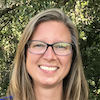 Elida Erickson joined the University of California Santa Cruz (UCSC) campus in 2005, and the Sustainability Office in 2011. In her current role as Sustainability Director, she is a strong advocate for student engagement and professional growth, and is passionate about challenging the sustainability movement to open up to multi-culturally relevant interpretations of how to care for the environment. She played a foundational role in the development of UCSC’s award-winningPeople of Color Sustainability Collective, which coined and defined the concept of “inclusive sustainability” in 2015. Elida has co-presented on inclusive sustainability, as well as the intersections of racism and the environmental movement with staff and faculty colleagues across the University of California system at the California Higher Education Sustainability Conference and the Association for the Advancement of Sustainability in Higher Education. She served as keynote speaker for UCSC’s staff and faculty Diversity & Inclusion Certificate program in 2019. Currently, she is directing the UC UC Carbon Neutrality Initiative – Equity project to ground the UC systemwide Sustainable Practices Policy in the principles underlying equity, inclusion, environmental justice and climate justice. Elida enjoys working collaboratively with colleagues across a wide variety of disciplines as well as institutions, and recently published an article with colleagues from CSU San Marcos in the Association for the Advancement of Sustainability in Higher Education (AASHE)’s ‘No Sustainability Without Justice‘ essay series. She has also collaborated with the local Santa Cruz community and UCSC students, faculty and staff to support waste reduction and education, as well as reduce campus water usage by 25% at the height of the California statewide drought in 2014-15.
Elida Erickson joined the University of California Santa Cruz (UCSC) campus in 2005, and the Sustainability Office in 2011. In her current role as Sustainability Director, she is a strong advocate for student engagement and professional growth, and is passionate about challenging the sustainability movement to open up to multi-culturally relevant interpretations of how to care for the environment. She played a foundational role in the development of UCSC’s award-winningPeople of Color Sustainability Collective, which coined and defined the concept of “inclusive sustainability” in 2015. Elida has co-presented on inclusive sustainability, as well as the intersections of racism and the environmental movement with staff and faculty colleagues across the University of California system at the California Higher Education Sustainability Conference and the Association for the Advancement of Sustainability in Higher Education. She served as keynote speaker for UCSC’s staff and faculty Diversity & Inclusion Certificate program in 2019. Currently, she is directing the UC UC Carbon Neutrality Initiative – Equity project to ground the UC systemwide Sustainable Practices Policy in the principles underlying equity, inclusion, environmental justice and climate justice. Elida enjoys working collaboratively with colleagues across a wide variety of disciplines as well as institutions, and recently published an article with colleagues from CSU San Marcos in the Association for the Advancement of Sustainability in Higher Education (AASHE)’s ‘No Sustainability Without Justice‘ essay series. She has also collaborated with the local Santa Cruz community and UCSC students, faculty and staff to support waste reduction and education, as well as reduce campus water usage by 25% at the height of the California statewide drought in 2014-15.
Elida holds a Bachelor of Arts degree from Loyola University New Orleans (2002), and Master of Science in Higher Education and Student Affairs Administration from Indiana University (2004). When not working, Elida can usually be found somewhere outdoors – climbing mountains, growing food and playing music.
Coach: Christopher Kuntzsch,
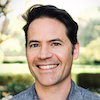 Christopher Kuntzsch has nearly 25 years of cross-disciplinary experience in the fields of conservation, sustainability, and leadership development. His career spans roles with the U.S. Fish and Wildlife Service (Exxon Valdez oil spill recovery), as biological consultant on numerous renewable energy projects, including the Ivanpah Solar Electric Generating System (ISEGS) and the Altamont Pass Wind Resource Area (APWRA), and serving as Sustainability Coordinator at the University of California, UC Santa Cruz, where he helped guide the first formal, campus-wide Sustainability planning initiative. Committed to education and capacity-building in the sustainability movement, he co-founded and co-directed the not-for-profit Ecology of Leadership organization and guided transformative leadership programs that empowered hundreds of changemakers over 15 years. As a consultant, he has supported purpose-driven leaders and organizations in sustainability and social enterprise through coaching, strategic planning, process design, and facilitation engagements that increase effectiveness and impact.
Christopher Kuntzsch has nearly 25 years of cross-disciplinary experience in the fields of conservation, sustainability, and leadership development. His career spans roles with the U.S. Fish and Wildlife Service (Exxon Valdez oil spill recovery), as biological consultant on numerous renewable energy projects, including the Ivanpah Solar Electric Generating System (ISEGS) and the Altamont Pass Wind Resource Area (APWRA), and serving as Sustainability Coordinator at the University of California, UC Santa Cruz, where he helped guide the first formal, campus-wide Sustainability planning initiative. Committed to education and capacity-building in the sustainability movement, he co-founded and co-directed the not-for-profit Ecology of Leadership organization and guided transformative leadership programs that empowered hundreds of changemakers over 15 years. As a consultant, he has supported purpose-driven leaders and organizations in sustainability and social enterprise through coaching, strategic planning, process design, and facilitation engagements that increase effectiveness and impact.
Coach: Fortino Morales III, Sustainability Officer, University of California, Riverside
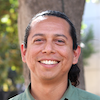 Fortino Morales III is the Sustainability Officer at the University of California, Riverside campus which located on Cahuilla, Tongva, Luiseno, and Serrano native lands. He received his B.S. in Environmental Sciences and his Masters of Public Policy from UC Riverside. As an undergraduate he helped start a student green fund and a community garden called the R’Garden. He served as the founding staff Director of the R’Garden for 6 years, which worked to raise awareness around food systems issues like food insecurity on and off campus. The R’Garden grew from a quarter acre to now nearly 8 acres serving 40,000 pounds of fresh produce to the students and community annually. Now in the Office of Sustainability, he leads a team of dedicated staff and students working to implement sustainability initiatives on a campus that is situated in one of the state’s most environmentally and socially impacted Census Tract’s according to CalEnviroScreen 3.0 (90-95%).
Fortino Morales III is the Sustainability Officer at the University of California, Riverside campus which located on Cahuilla, Tongva, Luiseno, and Serrano native lands. He received his B.S. in Environmental Sciences and his Masters of Public Policy from UC Riverside. As an undergraduate he helped start a student green fund and a community garden called the R’Garden. He served as the founding staff Director of the R’Garden for 6 years, which worked to raise awareness around food systems issues like food insecurity on and off campus. The R’Garden grew from a quarter acre to now nearly 8 acres serving 40,000 pounds of fresh produce to the students and community annually. Now in the Office of Sustainability, he leads a team of dedicated staff and students working to implement sustainability initiatives on a campus that is situated in one of the state’s most environmentally and socially impacted Census Tract’s according to CalEnviroScreen 3.0 (90-95%).
Coach: Debbie Namugayi, Vice President, VOX Global

Debbie Namugayi is a Vice President focused on environmental, social, governance (ESG) and corporate responsibility at VOX Global, a strategic communications firm based in Washington, D.C. She is a results-driven sustainability professional and LEED AP (BD+C) with a decade of experience managing projects in higher education and corporate sustainability. She utilizes strategic communication to engage broad audiences in complex issues about sustainability.
Debbie has implemented diverse, value-adding projects focused on sustainability program development, public ESG reporting, and green buildings. She has worked for small, private universities like Bucknell University and large research institutions like the University of Maryland where she established and managed multiple sustainability programs with broad campus and local stakeholder outreach.
Her sustainability consulting experience includes collaborating with global consumer brands and real estate companies to implement enterprise-scale ESG programs and enhance public disclosure to engage investors and key stakeholders. Debbie also has a technical background in sustainable buildings where she supported real estate companies and the U.S. EPA in optimizing building efficiency through the development of technical resources and achievement of green building certifications including LEED and ENERGY STAR.
Debbie holds a Master of Arts in Sustainability from Arizona State University and a Bachelor of Science in Environmental Science and Policy from the University of Maryland. She is originally from Kampala, Uganda and grew up in Montgomery Village, Maryland, a suburb of Washington, DC.
Coach: Dr. Julie Newman, Director of Sustainability, MIT
Dr. Julie Newman joined MIT as the Institute’s first Director of Sustainability in the summer of 2013. She has worked in the field of sustainable development and campus sustainability for twenty years. Her research has focused on the intersection between decision-making processes and organizational behavior in institutionalizing sustainability into higher education.
In 2004, Julie was recruited to be the founding Director of the Office of Sustainability for Yale University. At Yale, Julie held a lecturer appointment with the Yale School of Forestry and Environmental Studies where she taught an undergraduate course entitled – Sustainability: From theory to practice in institutions. Julie came to Yale from the University of New Hampshire, Office of Sustainability Programs (OSP) where she assisted with the development of the program since its inception in 1997. Prior to her work with the OSP she worked for University Leaders for a Sustainable Future (ULSF). In 2004 Julie co-founded the Northeast Campus Sustainability Consortium, to advance education and action for sustainable development on university campuses in the northeast and maritime region.
Julie lectures and consults for universities both nationally and internationally, participates on a variety of boards and advisory committees and has contributed to a series of edited books and peer reviewed journals. Julie holds a BS in Natural Resource Policy and Management from the University of Michigan; an MS in Environmental Policy and Biology from Tufts University; and a Ph.D. in Natural Resources and Environmental Studies from the University of New Hampshire.
Coach: Jessica Prata, Assistant Vice President, Office of Environmental Stewardship at Columbia University in New York City
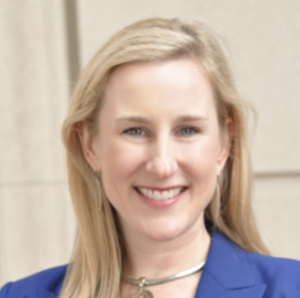 Ms. Prata is the Assistant Vice President in the Office of Environmental Stewardship at Columbia University in New York City. She leads a University-wide initiative that brings together staff, students and faculty to set and achieve goals towards a more Sustainable Columbia. In collaboration with leadership in both University Facilities and Operations and The Earth Institute, Ms. Prata and her team designed a governance model to centralize this important work through a new Senior Sustainability Advisory Committee and a number of focus teams. Together with these key stakeholders, Prata and her team are working to create the University’s first three-year sustainability plan. Ms. Prata serves as the Co-Chair of the Ivy Plus Sustainability Consortium, and as an Advisory Board member for the International Sustainable Campus Network (ISCN).
Ms. Prata is the Assistant Vice President in the Office of Environmental Stewardship at Columbia University in New York City. She leads a University-wide initiative that brings together staff, students and faculty to set and achieve goals towards a more Sustainable Columbia. In collaboration with leadership in both University Facilities and Operations and The Earth Institute, Ms. Prata and her team designed a governance model to centralize this important work through a new Senior Sustainability Advisory Committee and a number of focus teams. Together with these key stakeholders, Prata and her team are working to create the University’s first three-year sustainability plan. Ms. Prata serves as the Co-Chair of the Ivy Plus Sustainability Consortium, and as an Advisory Board member for the International Sustainable Campus Network (ISCN).
Coach: Matthew St.Clair, Chief Sustainability Officer, University of California’s Office of the President
 Matthew St.Clair is the first Chief Sustainability Officer for the University of California’s Office of the President and has been leading sustainability efforts across the 10-campus UC system since 2004. Mr. St.Clair was a founding member of the Board of Directors for the Association for the Advancement of Sustainability in Higher Education. He is also a member of the Board of Directors of Strategic Energy Innovations, an environmental nonprofit building leaders to drive sustainability solutions.
Matthew St.Clair is the first Chief Sustainability Officer for the University of California’s Office of the President and has been leading sustainability efforts across the 10-campus UC system since 2004. Mr. St.Clair was a founding member of the Board of Directors for the Association for the Advancement of Sustainability in Higher Education. He is also a member of the Board of Directors of Strategic Energy Innovations, an environmental nonprofit building leaders to drive sustainability solutions.
Mr. St.Clair has delivered lectures at numerous universities, been an invited keynote speaker at several regional and national conferences, and has advised the U.S. House of Representatives on the formation of an Office of Sustainability for the U.S. Capitol. Mr. St.Clair has a Masters degree in environmental policy from the Energy and Resources Group at UC Berkeley and a Bachelors degree in economics from Swarthmore College. He is a LEED Fellow and a Certified Energy Manager.
Assistant: Kyle Richmond-Crosset, Master of Environmental Management candidate, Yale School of the Environment
 Kyle Richmond-Crosset is a Master of Environmental Management candidate specializing in energy and the environment. Prior to attending Yale School of the Environment, Kyle worked in the Office of Sustainability at Swarthmore College. While there, he managed an off-site renewable energy procurement process, supported a year-long sustainability class and internship, and co-led a committee on carbon pricing. After Swarthmore, Kyle worked at The Cadmus Group, a strategic and technical consultancy focused on climate change, sustainability, and other environmental issues. In his role as a senior analyst, he worked primarily on climate resilience and water quality contracts for the U.S. EPA.
Kyle Richmond-Crosset is a Master of Environmental Management candidate specializing in energy and the environment. Prior to attending Yale School of the Environment, Kyle worked in the Office of Sustainability at Swarthmore College. While there, he managed an off-site renewable energy procurement process, supported a year-long sustainability class and internship, and co-led a committee on carbon pricing. After Swarthmore, Kyle worked at The Cadmus Group, a strategic and technical consultancy focused on climate change, sustainability, and other environmental issues. In his role as a senior analyst, he worked primarily on climate resilience and water quality contracts for the U.S. EPA.
Kyle is a graduate from Swarthmore College with a B.A. in environmental studies and a minor in computer science. He is interested in developing and implementing policies that accelerate the clean energy transition and center equity and justice, including electricity market design, transmission planning, and renewable energy deployment.
Any questions about the workshop?
Please contact Daita Serghi, education@aashe.org
Thank you to our Sponsors for your support!
